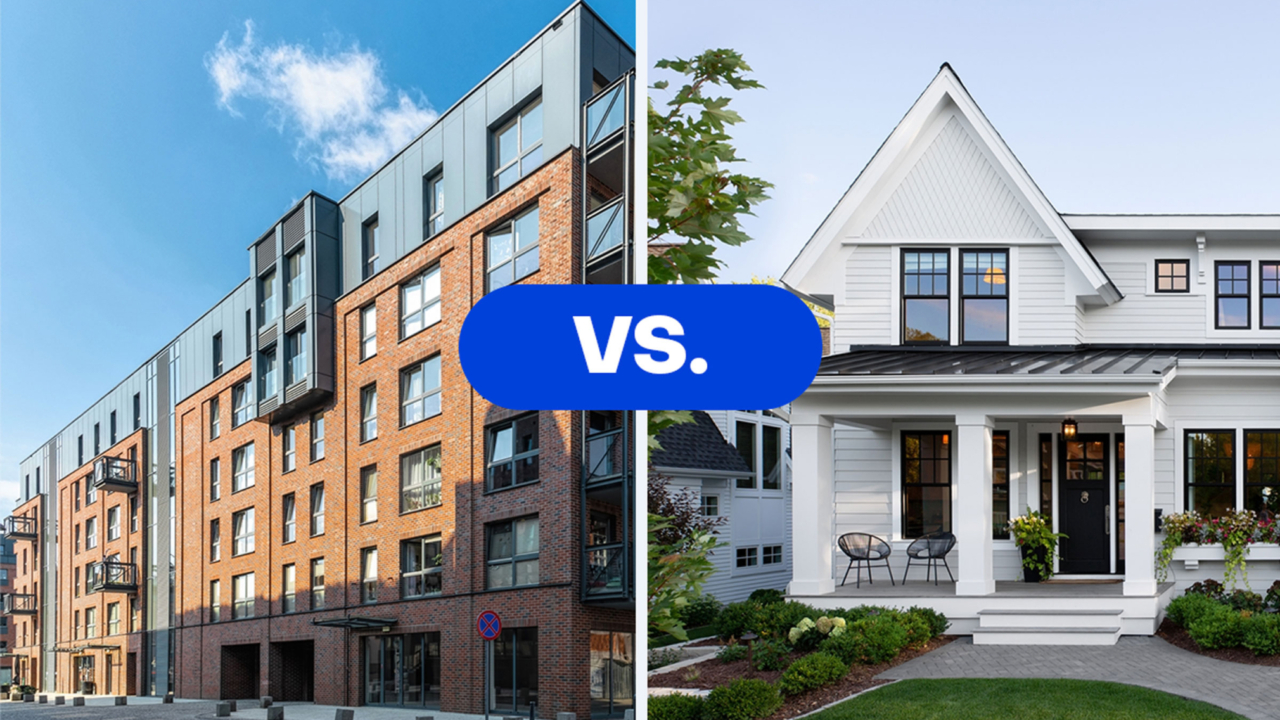What Do You Need to Buy a House?


Written by Jennifer Lyons on April 11, 2025
Reviewed by Jeff Rankin and Orphe Divounguy, Edited by Jessica Rapp
Whether you've found your dream home, are actively searching for that perfect place, or just exploring the idea of buying a house, the next big step is making it yours. To buy a home, you’ll need to have a few things in place — starting with the mortgage, which is often the key to unlocking homeownership. In fact, over two-thirds of buyers (70%) surveyed by Zillow in 2024 relied on a mortgage to bring their homeownership dreams to life. But don’t worry — this process doesn’t have to feel overwhelming.
In this guide, we’ll walk you through all the main requirements for buying a home, breaking it down step-by-step so you can feel confident, informed, and ready to make that big move toward owning your own place.
1. A realistic budget
Before you can buy a home, you’ll need to know how much you can afford to spend. Your home-buying budget can fluctuate depending on whether you’re planning to pay all cash or use a mortgage. You want to know just how much you can afford so you don’t wind up falling in love with a property that is outside of your financial “comfort zone.” It also helps keep you from getting in over your head with a home that is “too much” for said budget.
Experts recommend that your total monthly housing costs, including your mortgage payment, property taxes, and homeowner’s insurance, should not exceed 30% of your gross monthly income. To make this step easier, there are tools like Zillow’s Affordability Calculator to help you establish a comfortable homebuying budget based on your income, debts, and down payment. A little bit of preparation can keep you on track, so you’re not spending outside of your “comfort zone.”
2. A trusted real estate agent
While you don't need an agent to buy a house, they can help you navigate the constantly changing housing market, negotiate with the seller, and handle all the legal documents to avoid pitfalls. We recommend working with a local real estate agent you can trust — and half of buyers say their agent was the most helpful resource during their home buying journey, according to the 2024 Consumer Housing Trends Report. They can guide you through navigating the competitive housing market or negotiate terms with sellers, helping you be more confident at every step.
Our Premier Agent partners can offer personalized insights and guidance tailored directly to you and your home-buying needs.
3. A strong credit score
While you should always keep an eye on your credit report, now is the time to really try and improve your score. Your credit score plays a key role in several important parts of the home-buying process as it determines your mortgage approval, interest rates, and loan terms. A strong credit score gives lenders more confidence that you are able to manage your debt responsibly.
Banks and loan companies recommend aiming for a score of at least 620 or higher to qualify for most loans, but FHA loans are available with scores as low as 500. Generally, a score of 740 or higher can really help you score the most competitive interest rates. If your credit score needs work, focus on improving your score before you apply for a mortgage. Pay down on outstanding debts, manage credit card usage carefully, and make sure all your bills are being paid on time.
4. A stable source of income
Another thing that lenders will request before approving any mortgage is that you provide proof of your financial stability. That means you should expect to provide personal documentation, such as pay stubs, tax returns, W-2s, or 1099 forms, during the application process. If you’re self-employed, you’ll likely need additional documentation, such as profit and loss statements or bank transaction records.
The biggest thing that lenders want to see is stability. Consistent employment and a reliable income help reassure mortgage providers of your ability to manage monthly payments going forward. Your income also factors into your debt-to-income ratio, which is an important calculation in being able to qualify for a loan. The more consistent your work history the greater your chances of approval.
5. Cash for a down payment
Buying a home is likely going to be one of the biggest financial milestones in your life, and one early hurdle you’ll face is the down payment. This initial cost is more than just a financial obligation; it’s a key step in proving you can afford the house you are looking to purchase. But how much do you really need?
The answer can vary based on the loan type and the home's total price. Standard down payments typically range anywhere from 3% to 20% of the total purchase price.
Here’s an example: if you’re purchasing a $300,000 home, your down payment could range from $9,000 to $60,000. Depending on the loan program — such as FHA loans for first-time buyers or VA loans for veterans — you may qualify for lower down payment options. Remember, since a larger down payment means you’re borrowing less, it can help reduce your ongoing costs, such as monthly mortgage payments and interest paid over time — and may remove the need for mortgage insurance.
Here are some tips to help you start saving for a down payment on a house.
6. Financing for the home purchase
Unless you're making an all-cash offer, you'll need to secure a mortgage to buy a home. Financing your purchase involves several key steps — from finding a lender and choosing a loan program to understanding the layers of mortgage approval. Here’s a quick breakdown:
- Pre-qualification: Typically done before you begin shopping for homes, pre-qualification gives you an initial mortgage estimate and familiarizes you with your loan options. This step helps you understand how much cash you need to have available and how much home you may be able to afford. Pre-qualification typically relies solely on information from you, and is not verified.
- Pre-approval: Often completed instead of, or after, pre-qualification, pre-approval requires you to submit your financial documents to a lender for verification. They evaluate your income, credit, and debt-to-income ratio to determine a more accurate borrowing limit. Pre-approval acts as a conditional commitment to lend, boosts your credibility with sellers, and allows you to compare offers from multiple lenders.
- Approval: When you do find a property, you'll need to formally apply for a mortgage and secure final approval before closing. At this stage, you can apply to more than one lender to compare rates and loan options with a detailed loan estimate.
Taking these steps clearly defines your financial boundaries and streamlines your budgeting process — while positioning you as a serious, competitive buyer. Don’t wait — take the first step toward mortgage pre-approval today to fast-track your journey to homeownership.
Explore your mortgage and loan options with us at Zillow Home Loans*.
7. A winning offer
Of course, you’ll need to put together a strong offer and have it accepted by the seller. This document is your formal proposal to purchase a property and is the key to communicating your intent to the seller. The typical offer letter includes the price you are willing to pay, any terms and/or contingencies, and a proposed timeline for closing the deal. Beyond serving as a contractual starting point, this letter will also demonstrate your commitment and seriousness as a buyer.
The median seller reported in a 2024 survey that they received two offers, and 63% of sellers said at least one of the offers they received was all cash or did not include a financing contingency. To make your offer competitive, work with a local real estate agent to draft the contract. They’ll have market knowledge that can be used to offer a fair price. If you plan to finance the purchase, include a pre-approval letter with your offer. The most common reason an offer fell through was issues with money, mortgage or financing (40%). By showing the seller you’re pre-approved, you increase your chances of your offer being accepted.
8. A home appraisal and inspection
The next two things you need for your home purchase go hand in hand with one another: a home appraisal and inspection. A home appraisal helps ensure that your property holds financial value, while an inspection will check that the property is liveable and safe before you buy it.
Home appraisal
A home appraisal is a professional assessment of a property’s value. An appraiser will make sure that the home is priced fairly based on the market, the home’s condition, location, and comparable sales in the area.
Lenders typically require an appraisal before approving a borrower for a mortgage to confirm that the home’s value is equal to or more than the loan amount. A low appraisal could cause you to encounter issues with loan approval and mean you need to provide a larger down payment. By getting a home appraisal, you can feel confident that your investment is sound and in line with market standards. Note that while the appraisal does benefit you by confirming you're not overpaying, its primary purpose is to protect the lender's investment.
Home inspection
Before you finalize the purchase of your new home, you will want to arrange for a home inspection to identify any potential or existing issues. From structural concerns such as foundation cracks to plumbing or electrical problems, an inspection helps to make sure that you are aware of the property’s condition before committing. After all, no one wants to be sold a lemon, and it is up to you to do your due diligence!
If major repairs are needed, you may have the opportunity to renegotiate the purchase price or request fixes from the seller before closing. A home inspection can save you thousands of dollars in unforeseen costs and give you peace of mind knowing exactly what you’re walking into.
9. Money for closing costs
To finalize the home purchase, you’ll need cash to close. This includes an earnest money deposit, a down payment, and closing costs. While your earnest money gets applied to your down payment at closing, closing costs may require you to have an additional 2% to 6% of the purchase price on hand. For example, on a $300,000 home, your closing costs might amount to $6,000-$15,000.
Closing costs cover all sorts of services, including title fees, appraisals, inspections, and loan origination fees. It’s a good idea to factor all these expenses into your home-buying budget early on so there are no last-minute surprises. In a recent Zillow survey, 38% of buyers said they were surprised by closing costs. The number was even higher among first-time buyers (44%).
10. Homeowner's insurance
Your new home is a huge investment, and you want to make sure you protect that investment. You can do so by purchasing homeowner’s insurance, which essentially serves as a safety net that covers potential damages to your property that might be caused by unforeseen events. Most mortgage lenders will require proof of home insurance before approving your loan, which can make it a key step in the home-buying process. Not all policies are the same. Take the time to review your options, consult with your agent, and make sure that you are well covered.
*An equal housing lender. NMLS #10287
How much home can you afford?
At Zillow Home Loans, we can pre-qualify you in as little as 5 minutes, with no impact to your credit score.
Zillow Home Loans, NMLS # 10287. Equal Housing Lender
Get pre-qualifiedA great agent makes all the difference
A local agent has the inside scoop on your market and can guide you through the buying process from start to finish.
Learn more


